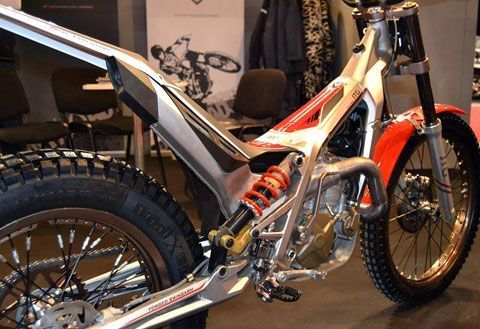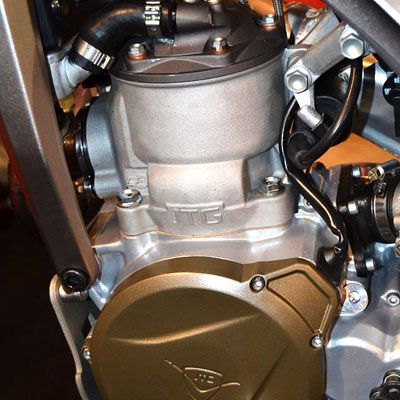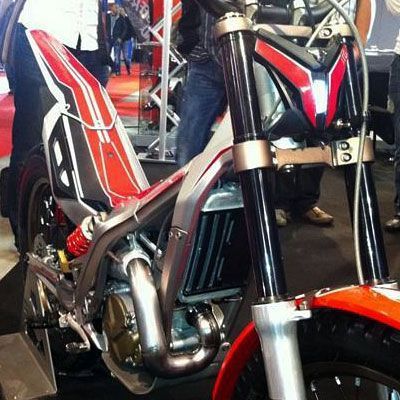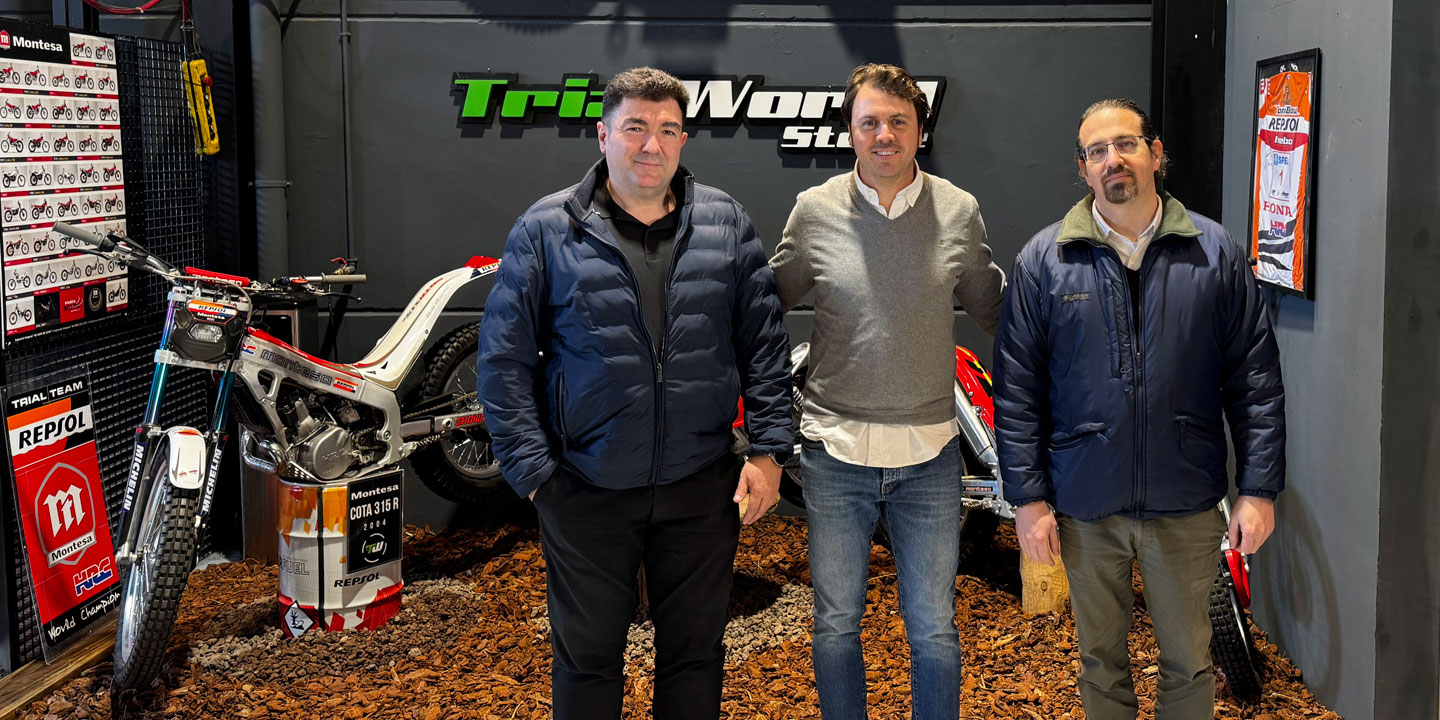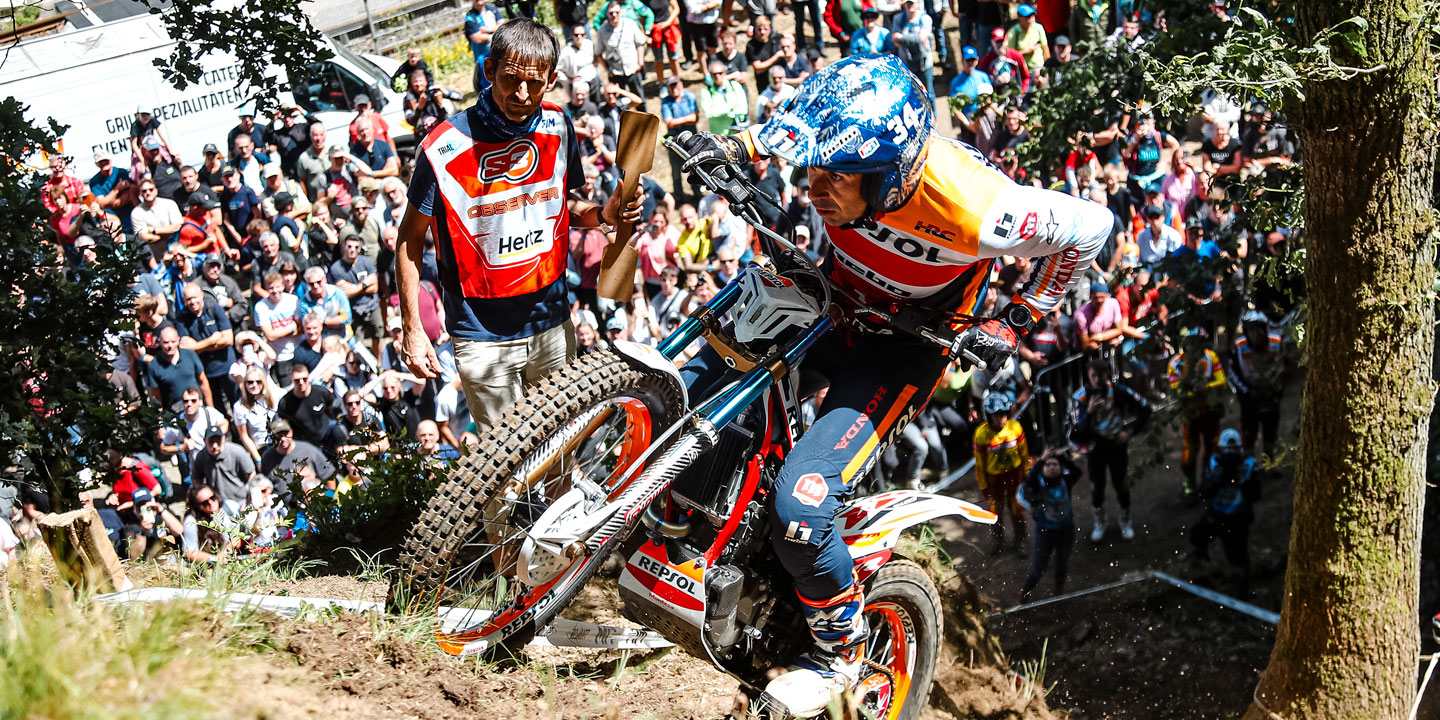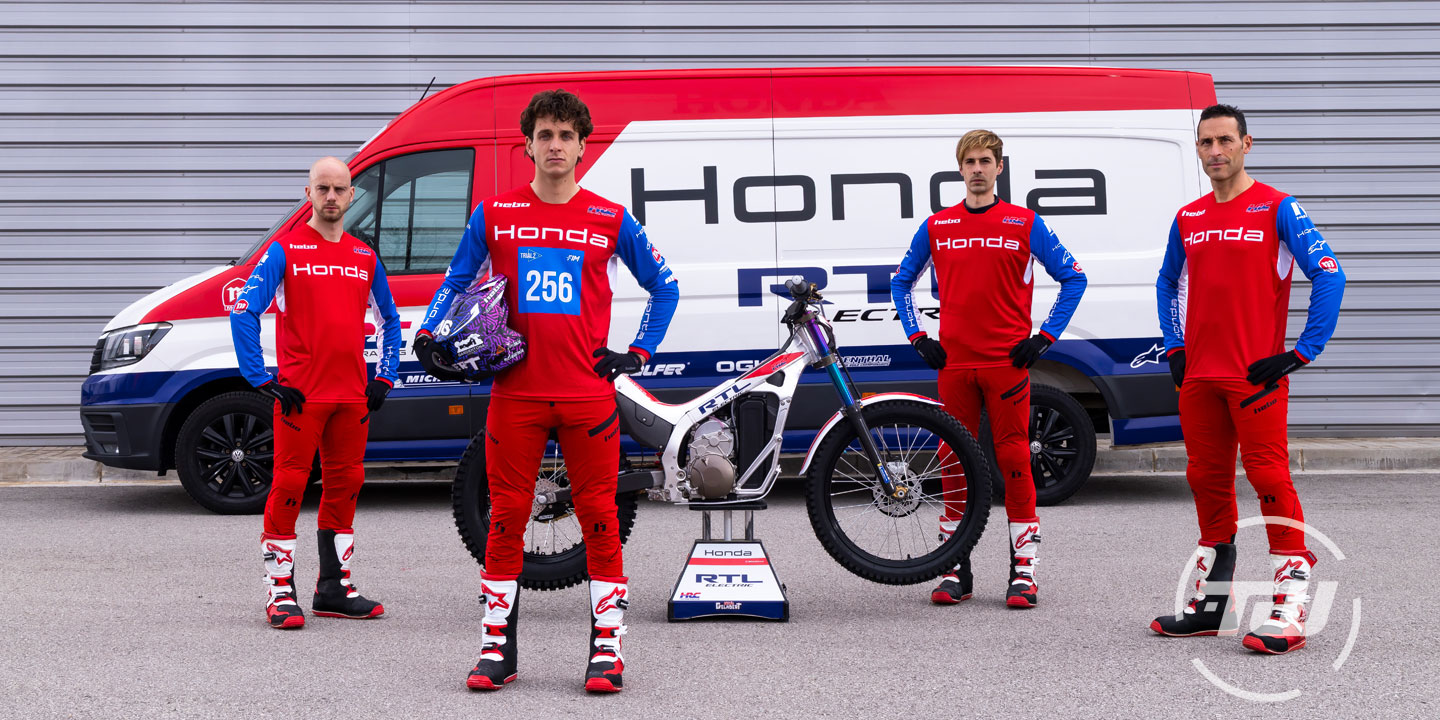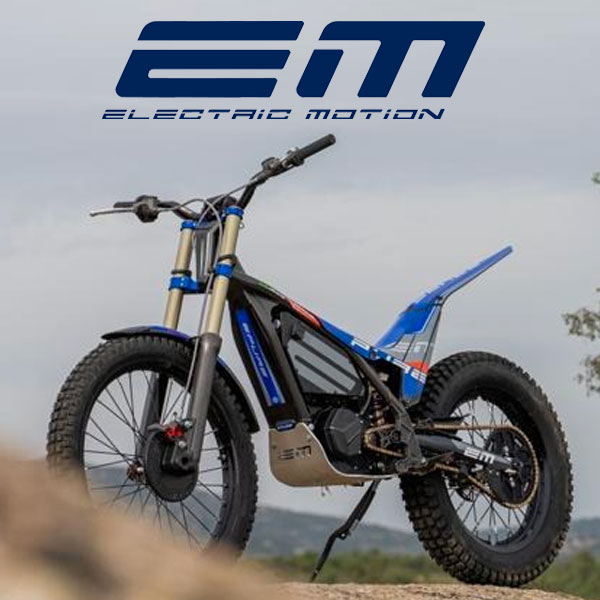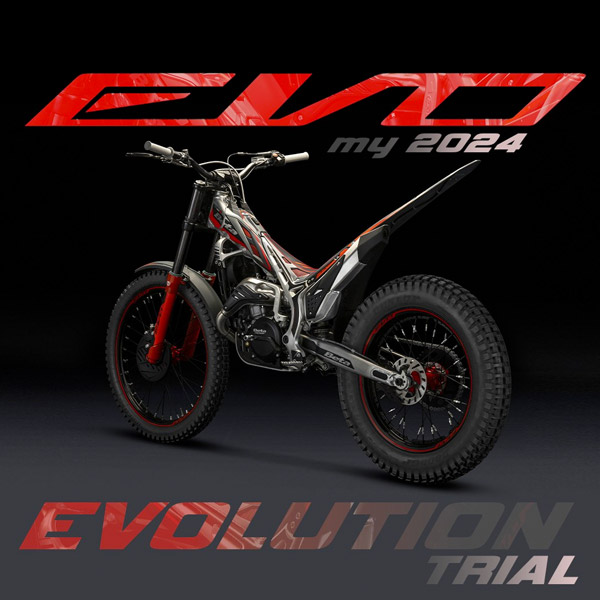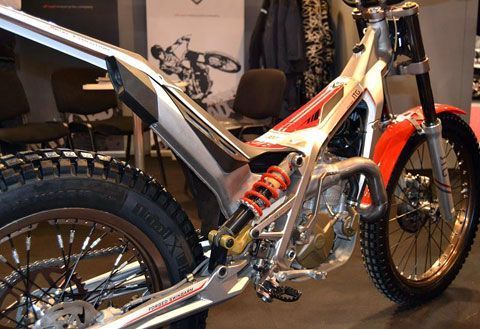
The EICMA motorcycle show has been the place chosen by the Aragonese brand to present the long-awaited JT, the trial model that goes by the acronym Jordi Tarrés, godfather and endorsement of the aforementioned project that has already seen the light. All eyes were on the JTG booth and the first photos of the bike have quickly begun to move on social networks; since Few technical details of the bike have been released, most fans have drawn their own conclusions about the new model guided only by images and intuition. The first of these conclusions and opinions that we have received from Facebook point to its shapes being reminiscent of the EVO Beta.
The data with which JTG expects to have the most impact is that of weight, since if its 65 kilos They’re true, This would be the lightest mass-produced trial bike in history. Let’s remember that to date Gas Gas and Ossa are the lightest on the market, with a final weight of around 67 kilos.
A new piece of news was uncovered in Milan, which joins what Trialworld already revealed after the interview with the Marketing and Sales Director of Jotagas, Marc Arañó: “the JTG will compete in the 2012 World Championship“. Now we know that it will be at the hands of the nephew of the man who has created this bike: Pol Tarrés. Therefore, the bike will be in the world championship, but not a priori in the absolute category, but in Junior. Undoubtedly, a good alibi to continue evolving the bike throughout 2012.
The price is expected to be around 6,000 euros
Access the JTG gallery with more than 30 photos
Technical information provided by JOTAGAS:
REAR SUSPENSION: The V3 suspension system has been designed to provide the best advantages, the position of the shock absorber, anchored laterally in the chassis, reduces the weight of the assembly considerably without losing the progressiveness, optimal for trial practice. Conceptually, it has been placed in a position designed to exert longitudinal pressure on the main tube of the chassis and on the highest profile of the swingarm, all anchors are aligned for the use of short screws and the reduction of bending.
Three linkages, three bolts, three movements on a single axis, this is how the third evolution of the system called V3 is achieved
CHASSIS: As a result of a great deal of research work, a revolutionary chassis has been developed that combines exceptional conditions, optimal triangulation and a reduction in total volume, in dimension and weight; Forged aluminum provides resistance and the possibility of working with variable profiles optimizing thicknesses and increasing material only where you need it most. The fuel tank, integrated into the chassis, uses the internal tubes to achieve greater fuel capacity without increasing the external volume and improving the rigidity of the whole, also allowing to work on external surfaces never seen before that provide a well-marked character.
TILT: The swingarm of the JT has been considered one of the star parts of the motorcycle, made of forged aluminum 6061 allows a variable profile with very marked shapes, its structure is totally designed to house the V3 suspension system anchored on one side.
ENGINE: Designed and conceived for trial practice, small in size and maintaining all the essential requirements to achieve reliability and performance. Its interior houses a larger diameter crankshaft that provides more inertia, thanks to the 5-speed gearbox a reduced size and weight is maintained with a conventional system.
FILTER BOX: Considered a strategic part for the performance of the JT engine, with an ideal air capacity, almost three liters, as well as a very good intake guiding the airflow through a rubber nozzle that provides the engine with much more power at all speeds. Thanks to the side filter replacement system, optimal accessibility and ease of cleaning are achieved.
WEIGHT DISTRIBUTION AND DRIVING POSITION: The geometry of the bike, a key aspect, provides comfortable, pleasant and efficient riding reactions; Weight reduction has been one of the priorities and has been achieved thanks to the design of each of the pieces for this purpose without losing the weight distribution and the riding position that allows the bike to be moved easily without losing precision in the front end.
Sheet
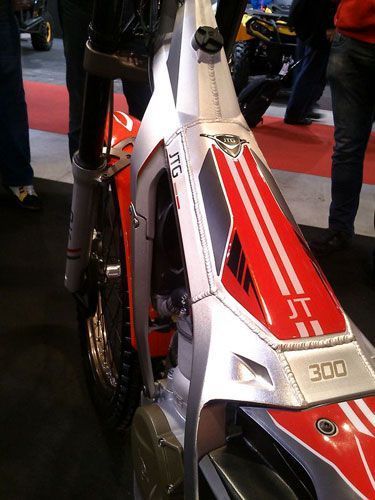
Crankcases: Aluminum
Cooling: Liquid
Intake: By direct slats to the crankcase
Displacement: 301.58 cc (250 & 280)
Bore x stroke 80×60
W75 gearbox and clutch oil
5-speed gearbox
Digital Ignition CDI HYDRIA co
n 2 Maps
Primary Transmission Gears
Secondary Transmission Per Chain
Dellorto PHBL 26 BS Carburetor
Chassis: Double Beam with side suspension system and integrated fuel tank
Swingarm: Forged aluminium
Eccentric Chain
Front suspension: 39mm TECH hydraulic adjustable COM-EX 175mm travel
Rear suspension PROGRESSIVE 175MM. OLLE 175mm shock absorber
Front brake: Disc diameter 185mm caliper 4 pistons FORMULA
Rear brake: Disc diameter 150mm caliper 2 pistons FORMULA
Rims: 32-spoke duralumin
Controls: DOMINO Gas Grip
Crankcase protector: Duralumin 7075
Brake pedal: 7075 forged aluminum retractable dropout
Handlebar: S3 variable section
Weight: 65 Kg
Fuel tank: Integrated into the 2.7 Litre chassis
As soon as we have more news, we will keep you informed. Click here to see all the previous information and photos of the JTG project
Remember that you can comment on this news.
ALSO DISCOVER THE FIRST PHOTOS OF THE GAS GAS ELECTRIC TRIAL
Text: Trialworld
{bonckowall source=”2″ pkey=”album” pvalue=”104487400570604964457″ pvalue2=”FirstPhotosJTGTrial” }{/bonckowall}
